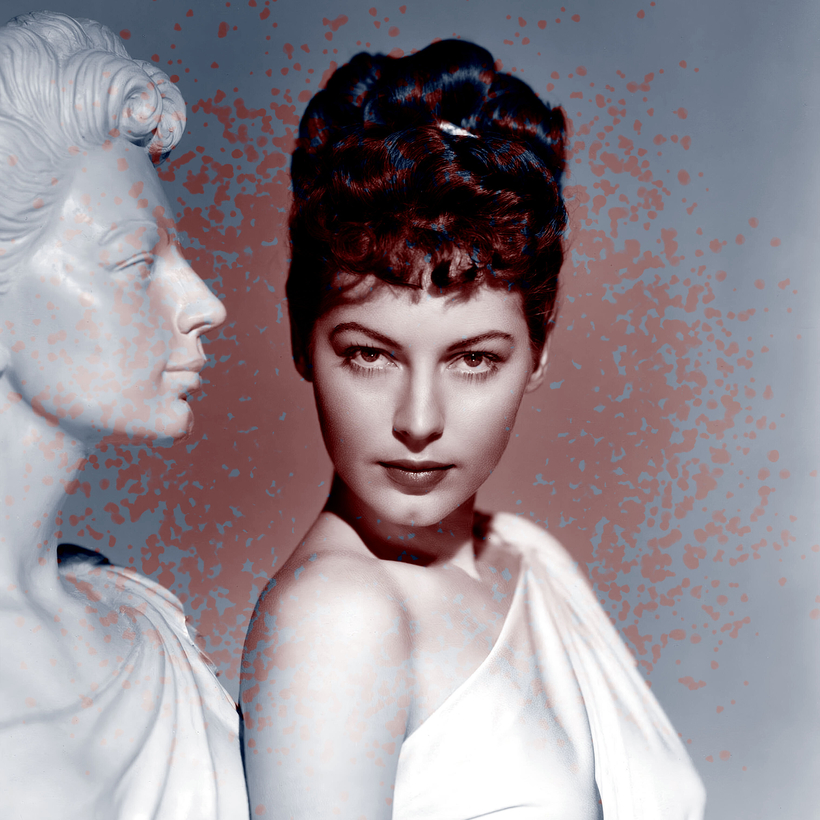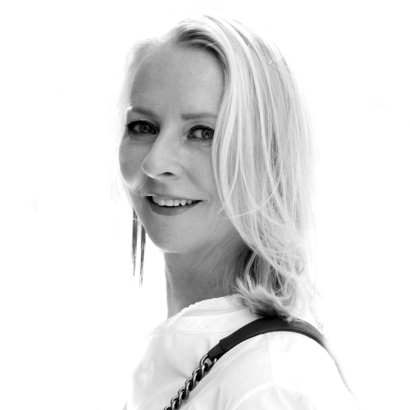Have you ever been minding your own business, listening to Edoardo Ballerini on your AirPods as you walk from A to B, when someone on the street cheerfully asks about your handbag (“I’ve never seen one in that color”); your necklace (“Is it vintage?”); your hometown (“You can’t be a New Yorker; you’re smiling!”); or greets you in Chinese (“Ni hao!”) even though you’re Korean-American?
Has one of these cheerful people flattered you so adeptly that you actually stopped and actually removed one AirPod (but not two)?
It happened to me at Madison Avenue and 69th Street. Lexington and 70th. Madison and 75th. Madison and 83rd. It happened to Brooke Garber Neidich, to Jenny Park, to Ellen Gendler, M.D. It’s happening in San Francisco, Phoenix, Chicago, and in malls across America.
A man named Freddy or a woman named Lily smiles with their mouth if not their eyes and suggests, right there on the street, that you might want to do something about your lines, your bags, or your dark circles. “Let me give you a sample. Because, really, you have so much potential!”
Don’t you just hate unrealized potential? I know I do, especially when it coalesces under my eyes, over my eyes, and—why not?—from my mouth to my chin. Also my neck. It’s just a bummer.
Don’t be sad. Welcome to Introstem! Welcome to Orogold! Join the party at Infinite Beauty! Come on in!
These single-brand skin-care boutiques have popped up around New York in the stores left vacant during the coronavirus pandemic. Some of them still look like kitchen or bathroom showrooms, statement-jewelry boutiques, or those places that sell message pillows (“LIFE’S TOO SHORT FOR CHEAP WINE”; “IF YOU WANTED BREAKFAST IN BED, YOU SHOULD SLEEP IN THE KITCHEN”) and glittery paintings of skulls.
LaFonde, at 811 Madison Avenue, is a boutique-slash-salon with sculptures of pastries in the window. The previous tenant may have been a pastry shop or a ceramics shop or a ceramic-pastry shop, but now it sells no pastry, unless you count that dry, cracking residue from the Introstem serum under your eyes, flakey as a mille-feuille. It isn’t French, even though Freddy says he’s from Paris. (“Where in Paris?” I ask. “Between 17th and 18th Streets,” Freddy answers. “In the south.”)
Freddy and I sit face-to-face in the shop, music blaring to scramble the brain. He pulls out a serum in a syringe-like tube and glides a thin, wet layer under my left eye, instructing me to dry it with a handheld fan. “You’re not going to believe this,” Freddy says, actually bouncing in his chair, incredulous. I look in the mirror and there’s no denying it: my undereye skin looks smooth and nearly lineless, wiped clear of six or eight years. Maybe 10. Could be 20.
It feels perfectly terrible, tight and dry, as if the area were coated with glue.
Freddy, like Lily, opens an iPad to the Introstem Web site that lists the Hydrolift Age Reforming Alpha Solution at $1,950. Pardon? No worries! Freddy or Lily can give it to me for a special promotion: $500. Wait, no! Maybe just this once, because they like me so much, I could have it for the one-time price of $250.

“Do you care about this?” Freddy points to the area between his nostrils and chin, meaning the area between my nostrils and chin. “Does it matter to you?” It certainly does.
“So you will buy the eye serum!” Freddy announces. I will not, because with wrinkles come wisdom, which I might needlepoint on a pillow.
I ask Dr. Ellen Gendler to check out Introstem, not as the clinical associate professor of dermatology at N.Y.U. Langone Health that she is, but as a regular citizen. Over three visits, $500, and increasingly elaborate promises, she has quite an adventure.
Freddy is also her man. He leans in close, perhaps too close, and performs the serum-and-fan routine. He tells her, “The stem cells in this stimulate the body to make collagen if you use it once a week.” Dr. Gendler tells me later that grape stem cells “do nothing” for the skin.
Dr. Gendler is ready to buy, but only if she’s guaranteed a full refund in the event that the serum causes trouble. Even though a sign in the store reads, “Finel [sic] sale,” she tells Freddy he must guarantee the refund in writing. “So he takes a piece of paper and writes his name—‘Freddy’—on it. That’s all. I say, ‘Freddy, I can’t use this paper. It just says your name.’ And it probably isn’t even his name. I write on the paper, ‘I can return this in 7 days.’ And then the manager comes and O.K.’s it.”
Now that Dr. Gendler has spent $500, Freddy offers her a “complimentary” non-surgical face-lift. “Do you know what a face-lift is?,” Freddy asks. Indeed she does. “Do you know who Vanessa Lima is?” She does not. Freddy doesn’t identify Vanessa Lima beyond describing her as a doctor who will perform the aforementioned procedure. (Dr. Gendler googles Vanessa Lima and discovers an ophthalmologist in Maryland.)
“I’m invested in you,” says Freddy, apparently unaware of how investing works. “You’re a V.I.P.! I’m super-excited.”
On the appointed day, Dr. Gendler arrives for her non-surgical face-lift, but Dr. Vanessa Lima does not. Freddy, also absent, is summoned by phone. He reports that the renowned doctor is busy at another store. In her place is a man who says his name is Tony. He says Dr. Lima is in Dubai and offers Dr. Gendler a combination of masks, serums, creams, and L.E.D.-light treatments for $9,000, $10,000 or $11,000, or $20,000 or $30,000, depending on how long she’d like the results to last. “Wow,” Dr. Gendler says. “This is expensive!” Tony loses patience, saying, “Well, do you want a face-lift or not?”
When Dr. Gendler returns to the store a third time, explaining that the serum irritated her skin and requesting a refund, Freddy tries to charge her a 20 percent “re-stocking fee.”
Dr. Gendler balks. “Freddy, you took the box right off the table.” He relents. Dr. Gendler offers to show him a photo of her reddened face, and Freddy replies, “I don’t want to see it. I don’t care.”
And that about sums up the apparent ethos of Introstem. They don’t care. Not about the dismal Yelp reviews, the scathing Reddit threads, or the cases filed with the Better Business Bureau. (I made several attempts to contact representatives of the brand for comment; as of press time, my e-mails and calls were not returned.)
Both Introstem and Orogold have received F ratings from the Better Business Bureau. “And that’s just like in grade school: A to F,” says Steve McFarland, president and C.E.O. of the Better Business Bureau of Los Angeles and Silicon Valley.
Apparently, the Introstem serum is—and I hate to say this—not a miracle. “The product is just a film-former,” says Dr. Gendler. As such, it does make the skin look tighter and firmer, but the effects wear off after about two hours when it starts to flake. Nothing else in the skin-care firmament works this quickly or dramatically, and then fails just as spectacularly. Instead, most products prevent damage or protect skin (with sunscreens, antioxidants, moisturizers, peptides, vitamins), and slowly, steadily deliver temporary results (with retinols, wound-healing complexes, and caffeine to reduce puffiness). I apologize, again, for that disheartening and probably boring news.
Introstem and Orogold are appealing, in part, because they aren’t boring, because they offer before-and-afters that strain credulity. They are, in the literal sense, unbelievable.
The boutiques are, according to their Web sites, independently owned and operated. I can almost see Mr. McFarland of the B.B.B. shaking his head over the phone. “Consumers are really having a rough go with them,” he says. “What’s the answer? Be wary.”
But there’s hope—because there simply has to be hope. A syringe of Introstem Stem Cell Anti-Aging Wrinkle Treatment is selling on eBay for $299. Use at your own risk; I certainly don’t recommend it. Still, returns accepted.
Linda Wells spent 25 years as Allure magazine’s founding editor, served as Revlon’s chief creative officer, and currently consults and sits on the boards of several beauty and apparel companies


